KATHMANDU, NEPAL. American Zen Peacemaker Roshi Joan Halifax and her team from Upaya Zen Center have been conducting their annual Nomad Clinic program in Kathmandu when a few days ago #Rohingya#refugees from #Myanmar started appearing at their medical camp with harrowing reports of violence over the border. Read below her report of bearing witness on the ground, the actions that arose and the Rohingya’s request to raise awareness.
“Our team has just returned from the Rohingya refugee camps here in Kathmandu. I need to settle after our experience there. The stories are horrifying, as we heard these people talk about the worst kind of ethnic cleansing. The second camp we visited is stuck in a muddy crack in the landscape, with rotten sandbags laid as steps into the warren of stinking alleyways built of tin. I am invited into a dark and fetid room where the rice, lentils, salt, and oil we have given is stacked high. Three men enter and stand before me. I listen as they tell me what they and their families have been through. The man on the left, tall with a heavy brow, has tears streaking down his cheeks. He has just escaped this past week. The Burmese air force is bombing those who are trying to make it over the border into Bangladesh. The man in the center says to me: “We cannot read or write; we have no voice; please let the world know how we are suffering.” Then he pulls a cell phone from a pocket in his shirt and holds it up before me. He tells me that this is his family who has been murdered by the Burmese army. I see women and children pushed into an open trench, then shot. Bodies writhe for a few seconds, then are still, and a wash of gas is thrown over them and they are lit on fire. I am shaken. They are crying. Outside I hear some of our team talking, and they have no idea what is being witnessed inside this dark shed. We stand facing each other in shocked silence. They then thank me for the food and for the medical treatment. The food will last only a few weeks, since this is all they have to eat. They tell me that no matter what religion we are, we are all the same. I am a Buddhist and filled with shame. They beg me to be a voice for the Rohingya. So I can only begin here, with what we experienced in these two refugee camps. Like “illegal” immigrants in our culture, these people have nothing, no recourse, no justice. They tell me that they are grateful that Nepal is not hostile to them. But Nepal won’t give them aid, as its struggles are so deep and they cannot support Rohingyas….. or really their own. The UN has withdrawn support and they are an abandoned people. Throughout, I returned to my practice to be with their plight. I cannot imagine how deep the sadness to see their people systematically murdered, the country of their birth being cruelly purged of their people.”
Roshi Joan: “The Rohingyas in both camps urged us to bring food. So we brought rice, lentils, oil, and salt to feed the lower camp for a month. The upper camp we did the same, and it will last 20 days.”
Upaya Nomads Clinicians seeing patients at the refugee clinic.
[…]
“…At this point, I am moving from one meeting to another, as we work on the Nomads Clinic preparations for Dolpo, and as well, move forward the Rohingya project. I am incredibly grateful for the collaboration of so many friends on these critical projects. The many hands and eyes of Avalokiteshvara…”
[…]
“Dear Friends, We had an important meeting with Thomas J Mathew this afternoon about the Rohingya refugees here in Kathmandu. He has been coordinating with Tora and Prabin Kumar Rawat the program of support for the camps. I think we have a good approach going forward: food and skills training. In the meantime, the violence against Rohingya mounts in Myanmar, and those that escape are stateless, wherever they go, whether Bangladesh, India, or Nepal. I am very grateful to the clinicians in Upaya’s Nomads Clinic for providing medical care for those in the camps. As well to Dan Lin and Rebecca Solnit for outreach. And Jonas Leddington for all the follow up necessary to connect the dots. Rice, lentils, salt and oil were also donated to feed the people in the camps for a month. I also want to thank the extended Facebook community for their compassionate response and giving the Rohingya a voice.”
[…]
From Melissa J White, Donor Services Manager at Upaya:
Hello, all. We are so appreciative of all the support for the Rohingya refugees in the last few days. We have now created a dedicated page for these donations to make it clear donors are giving to the Rohingya people.
Melissa
This post was last updated September 5, 2017
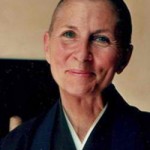 Roshi Joan Halifax is a Buddhist teacher, Zen priest, anthropologist, and pioneer in the field of end-of-life care. She is Founder, Abbot, and Head Teacher of Upaya Institute and Zen Center in Santa Fe, New Mexico. She received her Ph.D. in medical anthropology in 1973 and has lectured on the subject of death and dying at many academic institutions and medical centers around the world. Roshi Halifax is a Founding Teacher of the Zen Peacemaker Order and founder of Prajna Mountain Buddhist Order. Her work and practice for more than four decades has focused on applied Buddhism. Keep following Roshi Joan on her Facebook page and on Upaya Zen Center’s website.
Roshi Joan Halifax is a Buddhist teacher, Zen priest, anthropologist, and pioneer in the field of end-of-life care. She is Founder, Abbot, and Head Teacher of Upaya Institute and Zen Center in Santa Fe, New Mexico. She received her Ph.D. in medical anthropology in 1973 and has lectured on the subject of death and dying at many academic institutions and medical centers around the world. Roshi Halifax is a Founding Teacher of the Zen Peacemaker Order and founder of Prajna Mountain Buddhist Order. Her work and practice for more than four decades has focused on applied Buddhism. Keep following Roshi Joan on her Facebook page and on Upaya Zen Center’s website.

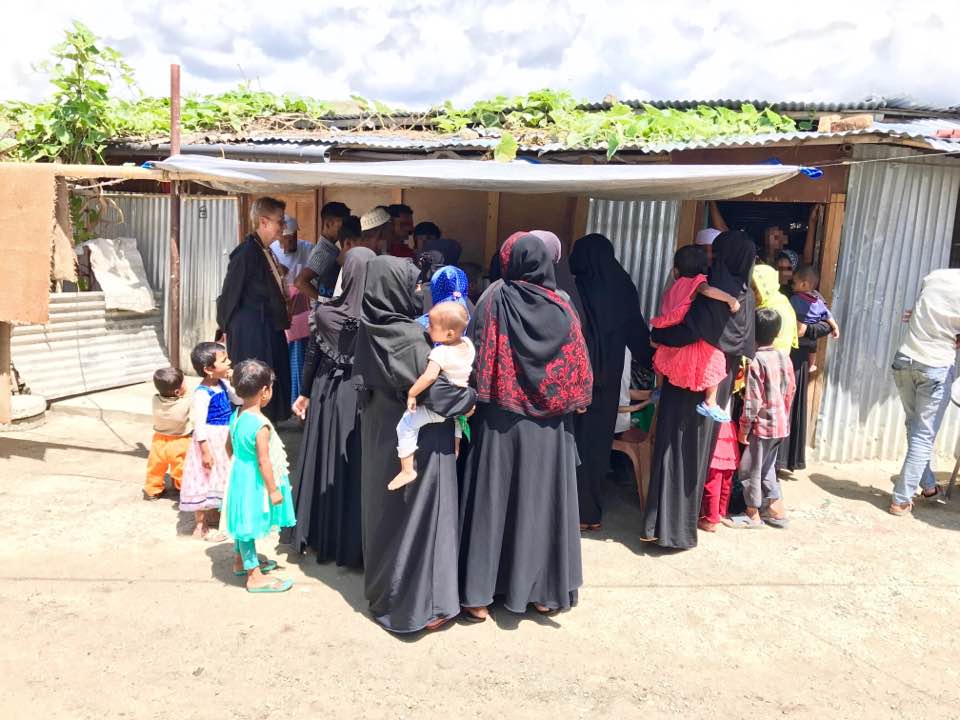
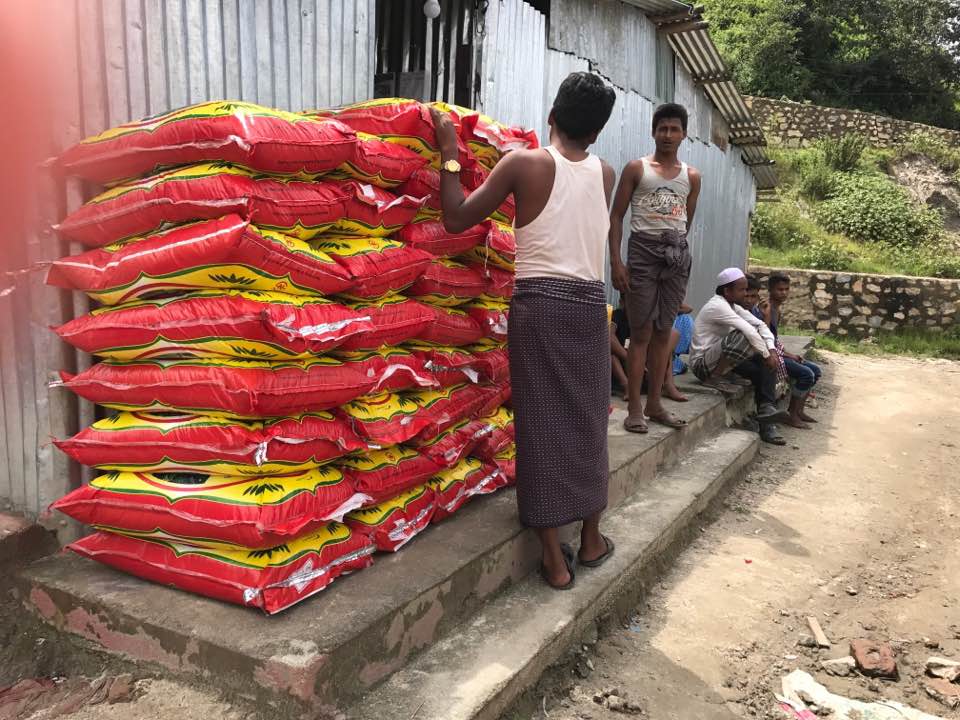
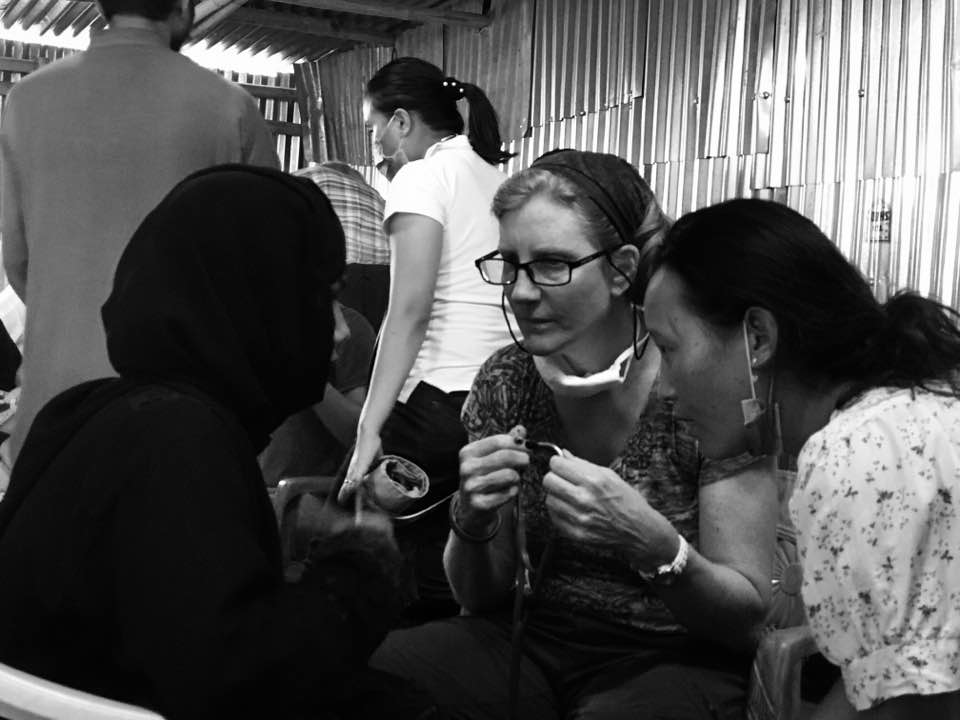
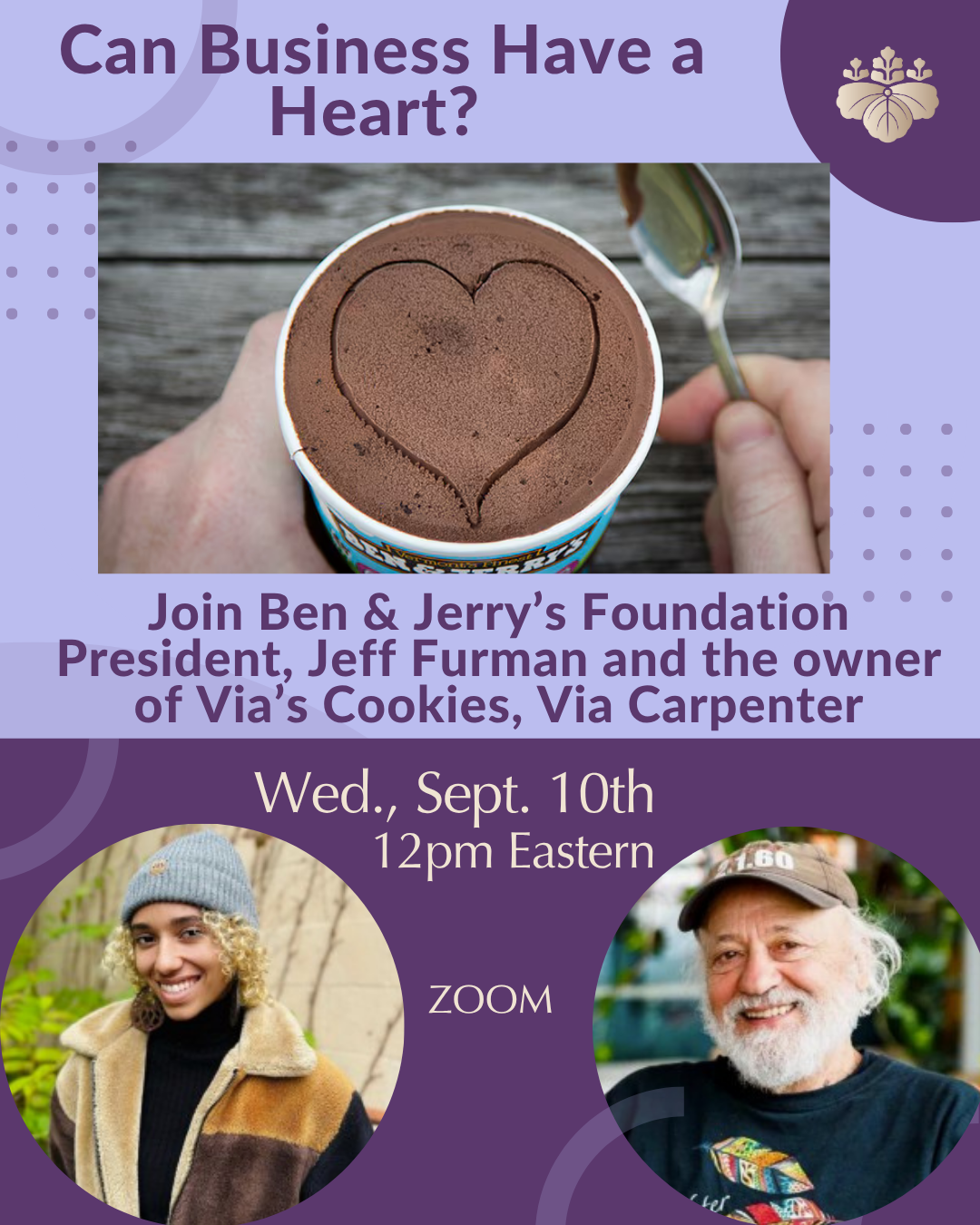
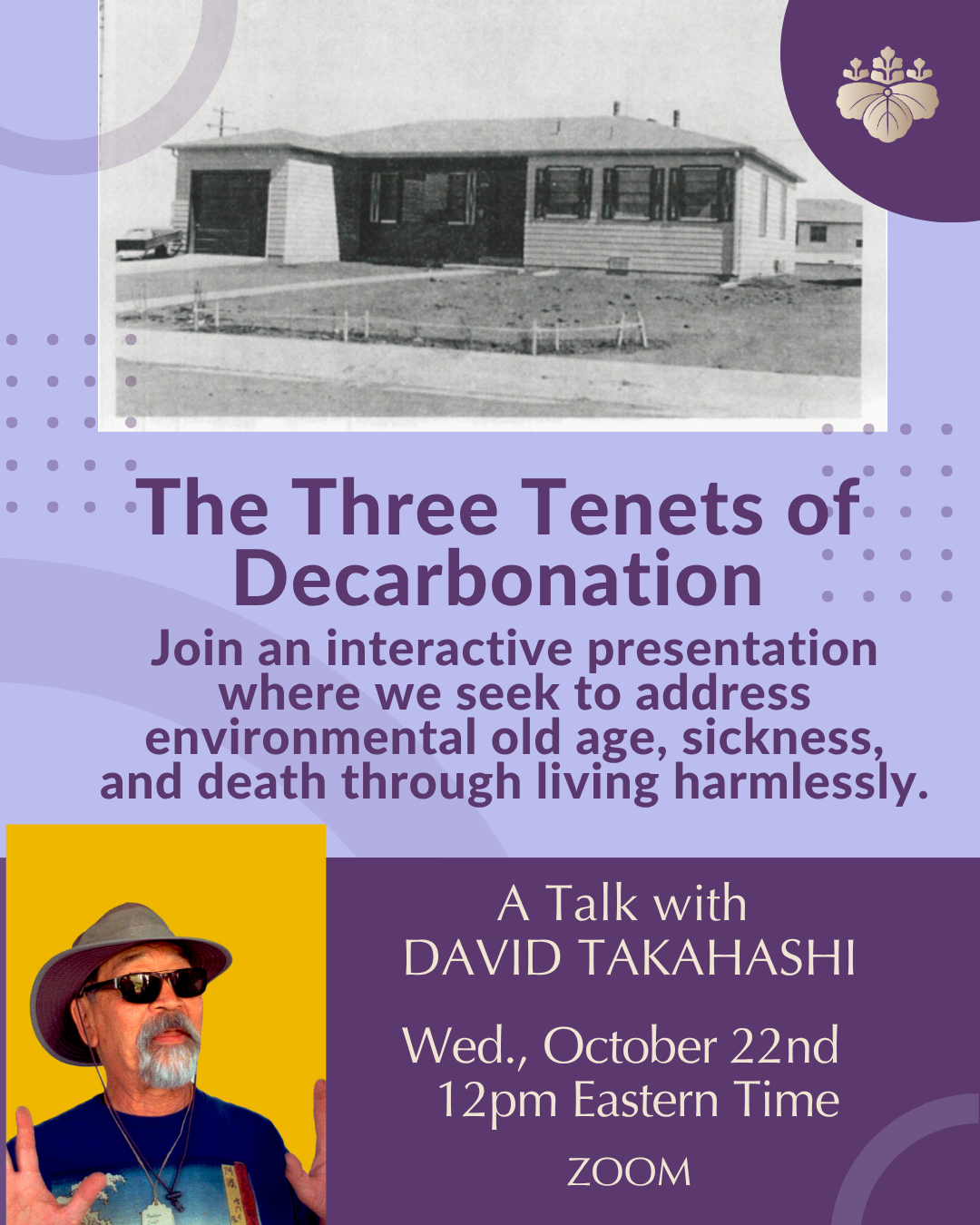
One Response
I am so moved and relieved, just a little bit, Roshi, that you are there, just at the right place and in the right time, to bear witness to the cruelty committed on this people.
Thank you so much for letting us partake, for at least sharing information, your heartmind. Thank you that you are listening so carefully, and publishing, just giving some few people a voice.
This is so precious!
Sending my love, my best wishes to any of them, also for the dead ones and their beloved.
If I had been free, without strong commitments, e.g. to see my sick mother next week and have a family conference with my sisters, and other basic stuff to do, I would really come and help you supporting all your friends.
Now I can only pray and express my grief, my concern, my woundedness, when I am testifying to all this.
With nine bows, Joan!
And bows to all the supporters and staff-members.
Love and gratitude
Monika